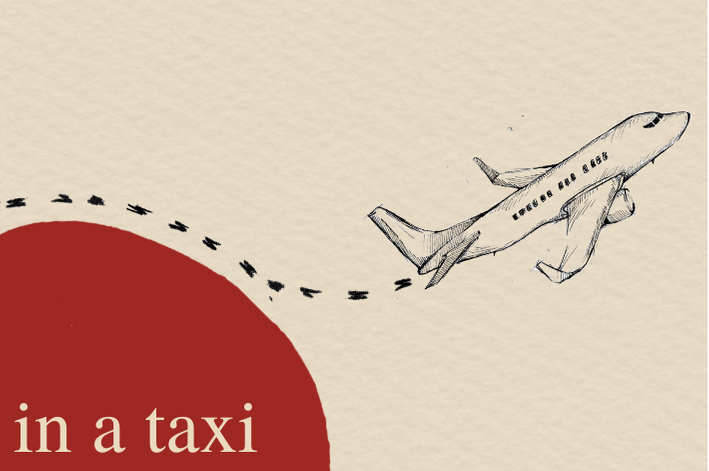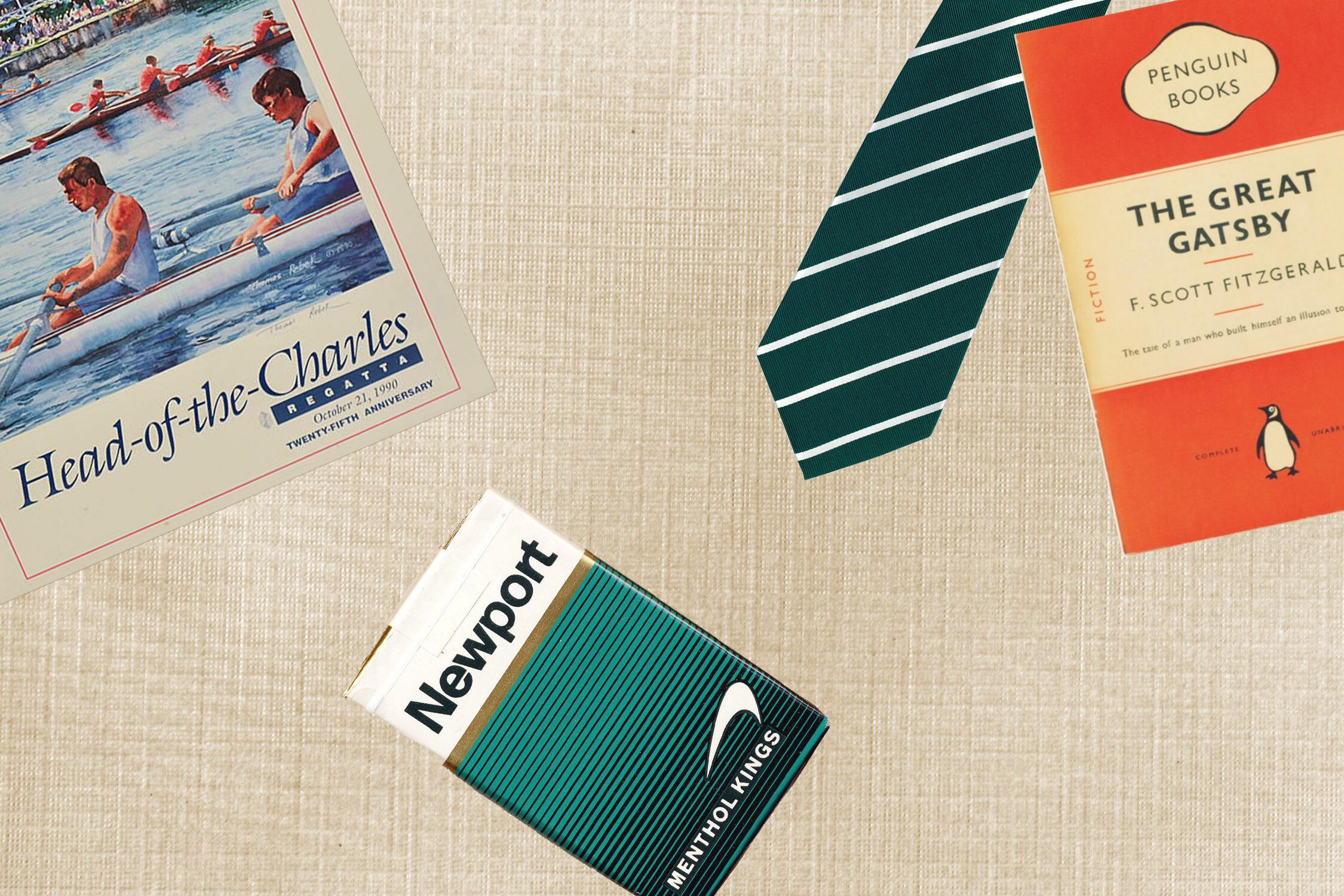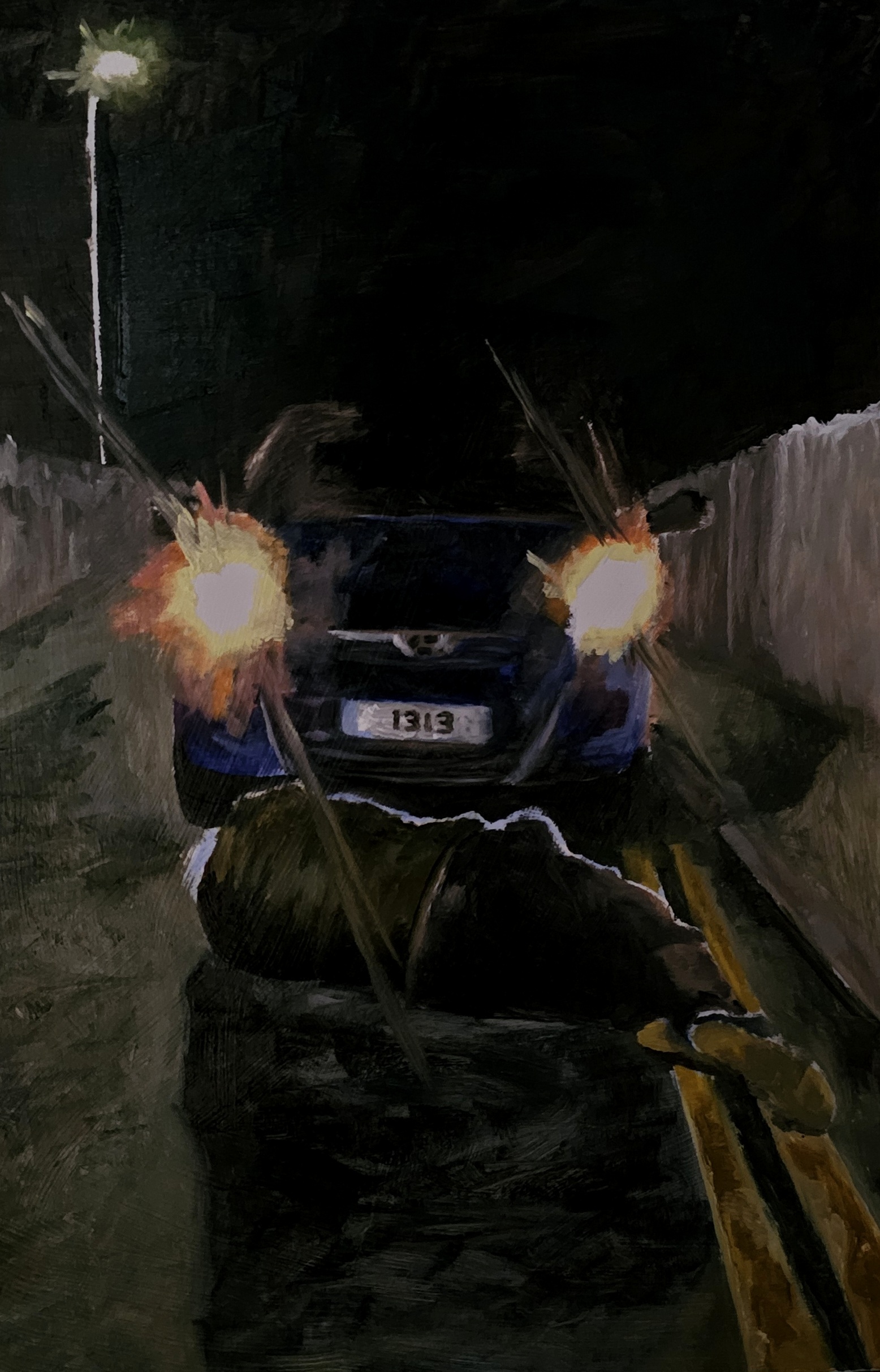
In a Taxi
Dong-gu is trying to keep his face shielded by the overhead mirror, but the bright light keeps hitting his eyes. He squints, accentuating the wrinkles that begin in the corners and sprawl across his face like route lines on maps, and his view is momentarily dimmed. He opens them wide again to watch the road in front of him. As the sun makes its slow, late-afternoon descent, it bounces off Seoul’s business district, briefly casting the grey metal of the skyscrapers in an orange glow. It is many shades softer than the standard bright orange of his taxicab. He is headed for the airport, and has switched the lit-up sign above his head to “Reserved”.
He can hear a faint humming sound; warm, pulsing, expectant – a city on the brink of something large. Or just his exhaust system. The other cars on the road swarm and disperse, like the little black beetles that scuttle past when he swats his rolled-up newspaper on his kitchen floor. The thwack! sounds break the stillness of the mornings.
He is going to the airport so he can pick up his daughter. Her name is Eun-kyung, but in America, it is Frances. He can’t understand why this is. Her first summer back home from university, she had explained it to him. It was softer, gentler, easier on the tongue. Whose tongue? His daughter’s birth name lay between them on the faux wood floor as his lips fumbled to accommodate the foreign object in his mouth. Pren-sih-zeu. It sounded ugly. A smirk had played across her face, vanishing almost immediately, and he had felt a stinging in his chest. Why can’t you teach them how to pronounce “Eun-kyung”, huh? She couldn’t answer him.
He would joke with his drinking buddies at the neighbourhood pocha about how an American girl had come home in his daughter’s place, chuckling as the soju slid bitter down his throat. Afterwards, he’d sit on the floor at home, half-drunk, watching women in blouses make static movements to Lee Sun Hee songs across his faded TV screen. He’d whisper his daughter’s names to himself over and over again in the dark. Fran-ces. Fran-ces. Eun-kyung. Fran-ces.
For a moment, his car is engulfed by a school of fish, with headlights like glazed eyes and grilles like gaping mouths, guzzling hot air, exhaling hotter air, propelling themselves forward, darting past him one at a time. The speed limit on the highway is eighty kilometres per hour; they can’t all be going faster than that, surely. He wonders why it feels like a race. He certainly didn’t set off from the right starting point, and his vision is too poor for him to see the finish line. His car ambles along.
The city does not pause. It waits for no-one. Especially not for old farts like Dong-gu, whose taxis trundle along highways a few beats slower than the others. Who sit and drink packets of Maxim instant coffee with their breakfast on the front steps of their houses as the sunlight spills across their empty yards. Who wait for their daughters to call home.
The people of New York—that other city—always seem to be busy. His most prominent impression of America comes from the Home Alone films. He remembers seeing a young Macaulay Culkin scurry up and down big menacing streets, and he’d cover Eun-kyung’s eyes whenever she flinched at the sight of the burglars. When she clapped her hands at the end, delighted that the little blond boy had been reunited with his parents, he asked her, Eun-kyung-ah, you wouldn’t just run off on your own like that, would you?
No! Never!
Oh, that’s such a relief for your appa to hear! How worried you almost made me!
Dong-gu glances across the empty passenger seat as the Han River comes into view beneath the overpass, rippling in little wavelets as wind blows against it from the west. He remembers the stones he clumsily skipped across the water’s surface as a young man, half-awake, after conversations over black night that entered blue dawn and slowly dissipated upon pink morning. He sees a past version of himself showing off, standing precariously on a rock, his wife’s laughing voice telling him to be careful as she holds their daughter. He remembers the echoes of Eun-kyung’s infant laughter at the sight of his arm taking aim, a knee bent forwards, wet fingers grasping slippery granite, counting the number of bounces before the final plop.
There had been an argument the last time she’d visited him as an adult. Eun-kyung was standing in the kitchen she had played in as an infant, giving each of her bags a once-over as they lay at the foot of the dining table set for three. Dong-gu was reclining a few feet away from his daughter on the sofa, watching an outdated drama series, when she told him about the white man who she planned to marry that year. He had twisted sideways, turning his back to her for the rest of the evening. It was an uncomfortable position. She told him he was being unreasonable. She’d asked, then pleaded, then begged him to accept her choice. After a silence, he spoke to her in a low voice as he stared at the wall. Who are you to leave me behind? He continued to strain his back muscles until he heard her feet shuffle out of the living room, accompanied by a sniffing sound and a door closing softly. Then, and only then, he silently turned around, massaged his aching spine, and put his head in his hands, rocking back and forth until he fell asleep.
He had never met Chris, but had come to distrust him in spite of it. He had decided that the only thing this man was good for was a green card. Upon hearing that the two had split up, his first thought had been, there go her chances. Then, after a few moments, I hope that bastard hasn’t upset her—but he had laboured to form this thought. He was shocked at his own apathy. How had compassion come second to reproach?
Yet here he is, driving to meet her. He is making towards the edge of the city, after which he’ll listen to the navigation lady’s crisp tones offer him one-sided conversation until he reaches his destination. On the days he makes airport journeys, she is his only company. He glances to his left as a message pops up on his phone. Eun-kyung has just landed. She is safe.
He reaches the Terminal One car park, pulling a hot flask of Maxim coffee from the cup holder. At the arrival hall, he waits for Eun-kyung, leaning against the wooden railing. He scans the quickly forming crowd as people straggle out of the doors every few minutes, some running, some walking, into familiar arms.
He spots his daughter, and she looks back at him, taking in the worry-lines that have settled deeper into his forehead in the time she’s been away, and the shabby windbreaker he’s been wearing since she was in middle school. She stops in front of him and he presses his flask into her hands, watching her face as the steam wafts up towards it.
He asks her about her flight, and they exchange the usual greetings.
“You didn’t have to come, appa.”
He remembers waking up on the sofa with a sore back, driving her to this same airport in silence, wondering how much would change. He has his answer now.
“No, no,” he says. “Of course, I did.”
They don’t say much more to each other as they walk towards his taxi. They don’t need to. The feeling in his chest is warm. He loads her bags into his boot, and together, they set off for home.∎
Words by Claire Ion. Art by Liz Tiskina.







